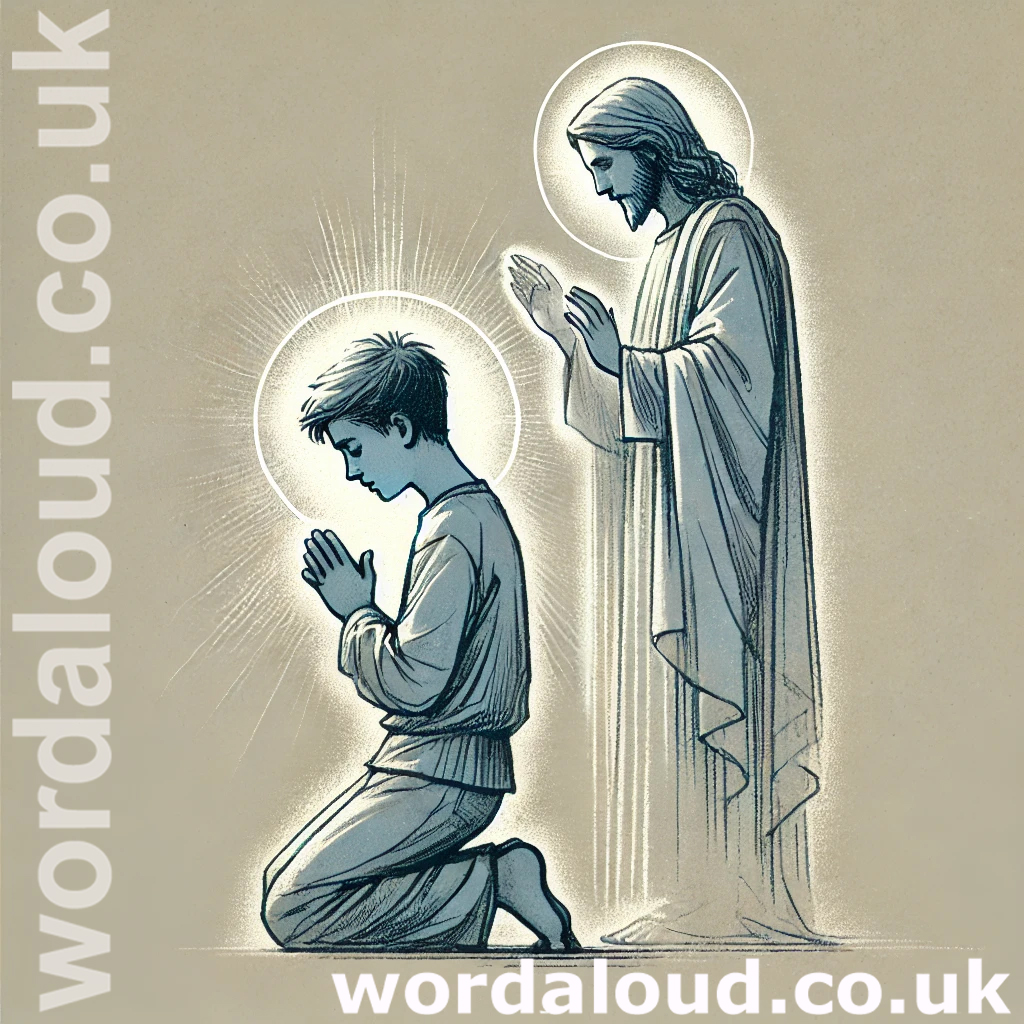Office Of Readings | Eastertide Week 7, Thursday | A Reading From The Commentary On The Gospel Of Saint John By Saint Cyril Of Alexandria | The Holy Spirit At Pentecost
‘If I do not go away, the Comforter will not come to you.’
Saint Cyril of Alexandria, one of the great theological architects of the early Church, here reflects on the mystery of Jesus Christ’s Ascension and the sending of the Holy Spirit. His words articulate the transformative nature of the Spirit’s presence in believers and offer profound insights into the life of grace.
The Necessity Of Christ’s Departure
Cyril begins by situating the sending of the Holy Spirit within the broader arc of salvation history. The Incarnation brought God into human history in the person of Jesus Christ; yet, it was not until Christ had completed his earthly mission – culminating in his Passion, Resurrection, and Ascension – that humanity could fully receive the indwelling of the Spirit.
Here Cyril echoes the Johannine theology found in John 16:7: ‘It is to your advantage that I go away; for if I do not go away, the Advocate will not come to you.’ This ‘going away’ is not abandonment but fulfilment. Christ’s physical departure makes way for his continued spiritual presence through the Spirit, who can now dwell in all believers, not bound by geography or chronology.
Sharing In The Divine Nature Of Jesus
Cyril invokes one of the central tenets of Eastern Christian theology: theosis, or divinisation. He writes that we are called to become ‘sharers in the divine nature of the Word’, echoing 2 Peter 1:4. This is not a metaphorical flourish but a real participation in the life of God, made possible through the Spirit.
Our old life must give way to a new existence animated by divine grace. The Spirit, according to Cyril, is not merely an external force but an indwelling presence that transforms the heart. This transformation is not simply ethical or behavioural, but ontological – it changes who we are.
The Spirit As Indwelling Power
The Holy Spirit, once sent, enables a kind of inner communion with Christ that is deeply personal and mystical. Cyril writes that the Spirit gives us the boldness to cry out ‘Abba, Father’ (cf. Romans 8:15), indicating our adoption as children of God. This indwelling presence empowers believers to resist evil and persevere in holiness.
Here we find resonances with other patristic voices:
- St Basil the Great, in his treatise On the Holy Spirit, emphasises that the Spirit is not only with us but within us, working transformation.
- Gregory of Nyssa writes of the Spirit as the means by which the soul is elevated to divine things.
- Irenaeus of Lyons referred to the Word and the Spirit as the ‘two hands of the Father’, shaping us in the divine image.
Transformation In Scripture And Experience
Cyril substantiates his claim with examples from both Testaments. The transformation of Saul in 1 Samuel 10:6 illustrates how the Spirit changes even one’s personality and destiny. Likewise, Paul’s words in 2 Corinthians 3:18 describe believers being transformed into the image of Jesus Christ, ‘from one degree of glory to another’.
The descent of the Spirit at Pentecost is the most vivid New Testament image of this transformation. The once-timid disciples, paralysed by fear, are emboldened to preach Christ crucified and risen. Their inner change is as miraculous as any physical healing: they become martyrs, evangelists, and saints.
Contemporary Relevance | Jesus In Our Time
In our time, Cyril’s teaching remains deeply relevant:
- In spiritual direction, his insights encourage believers to open their hearts to the Spirit’s transforming power, especially through prayer, sacraments, and acts of charity.
- In catechesis, his words enrich the understanding of Baptism and Confirmation, which are the sacramental outpourings of the Spirit.
- In pastoral care, the transformation he describes offers hope to those struggling with sin, fear, or spiritual stagnation: the Spirit can and does make all things new.
The Spirit is not a passive presence but an active, dynamic force who awakens courage, deepens love, and kindles the flame of divine life in the soul. As Cyril affirms, it is indeed better that Christ ascended, for in his going, the Spirit came – and in the Spirit, Christ remains.
Reflection | The Promise Of Pentecost
The transformation Cyril describes is not limited to the saints of old. It is the invitation to every believer: to become ‘another person’, filled with divine life, oriented not to this world but to the Kingdom, not timid but courageous. This is the promise of Pentecost. This is the gift of the Comforter.

A Reading From The Commentary On The Gospel Of Saint John By Saint Cyril Of Alexandria
‘If I do not go away, the Comforter will not come to you.’
After Christ had completed his mission on earth, it still remained necessary for us to become sharers in the divine nature of the Word. We had to give up our own life and be so transformed that we would begin to live an entirely new kind of life that would be pleasing to God. This was something we could do only by sharing in the Holy Spirit.
It was most fitting that the sending of the Spirit and his descent upon us should take place after the departure of Christ our Saviour. As long as Christ was with them in the flesh, it must have seemed to believers that they possessed every blessing in him; but when the time came for him to ascend to his heavenly Father, it was necessary for him to be united through his Spirit to those who worshipped him, and to dwell in our hearts through faith. Only by his own presence within us in this way could he give us confidence to cry out, Abba, Father, make it easy for us to grow in holiness and, through our possession of the all-powerful Spirit, fortify us invincibly against the wiles of the devil and the assaults of men.
It can easily be shown from examples both in the Old Testament and the New that the Spirit changes those in whom he comes to dwell; he so transforms them that they begin to live a completely new kind of life. Saul was told by the prophet Samuel: The Spirit of the Lord will take possession of you, and you shall be changed into another man. Saint Paul writes: As we behold the glory of the Lord with unveiled faces, that glory, which comes from the Lord who is the Spirit, transforms us all into his own likeness, from one degree of glory to another.
Does this not show that the Spirit changes those in whom he comes to dwell and alters the whole pattern of their lives? With the Spirit within them it is quite natural for people who had been absorbed by the things of this world to become entirely other-worldly in outlook, and for cowards to become men of great courage. There can be no doubt that this is what happened to the disciples. The strength they received from the Spirit enabled them to hold firmly to the love of Christ, facing the violence of their persecutors unafraid. Very true, then, was our Saviour’s saying that it was to their advantage for him to return to heaven: his return was the time appointed for the descent of the Holy Spirit.

Glossary Of Terms
Ascension: The event of Christ’s return to the Father in heaven, forty days after the Resurrection, marking the end of his visible earthly ministry.
Advocate / Comforter: English translations of the Greek Parakletos, a title for the Holy Spirit meaning helper, intercessor, or one who comes alongside.
Theosis (Divinisation): The process by which human beings are made partakers in the divine nature through grace, as taught especially in Eastern Christian theology.
Indwelling: The presence of the Holy Spirit within the soul of the believer, making them a temple of God.
Patristic: Relating to the early Church Fathers—those theologians and bishops of the first centuries of Christianity whose writings shaped orthodox Christian doctrine.
Pentecost: The feast occurring fifty days after Easter, commemorating the descent of the Holy Spirit upon the apostles and the birth of the Church.
Johannine Theology: The theological themes found in the writings attributed to St John the Evangelist, particularly the emphasis on love, truth, light, and the indwelling of God.
Sensus fidei: Latin for the “sense of faith”; the spiritual instinct given by the Holy Spirit that enables the faithful to recognise and embrace true doctrine.
Sacraments: Visible signs instituted by Christ to confer grace, especially Baptism and Confirmation in the context of the Holy Spirit’s work.
Transformation (Ontological): A change not just in behaviour or feeling, but in the very nature or being of the person, as understood in spiritual theology.

Prayer With Jesus
Come, Holy Spirit, our Comforter and Guide,
You who were sent when the Son returned to the Father,
dwell within our hearts and make us temples of your glory.
Transform us as you transformed the apostles;
fill our weakness with strength, our fear with courage,
and our hearts with the fire of divine love.
Make us sharers in the divine nature,
that we may live no longer for ourselves
but for Christ, who lives in us.
Lead us ever deeper into truth,
that beholding the glory of the Lord,
we may be changed from one degree of glory to another.
Through your presence,
grant us grace to resist evil, endure trials,
and bear witness to the life of the world to come.
Spirit of the Living God,
renew your Church, your people, your world.
Through Christ our Lord. Amen.








